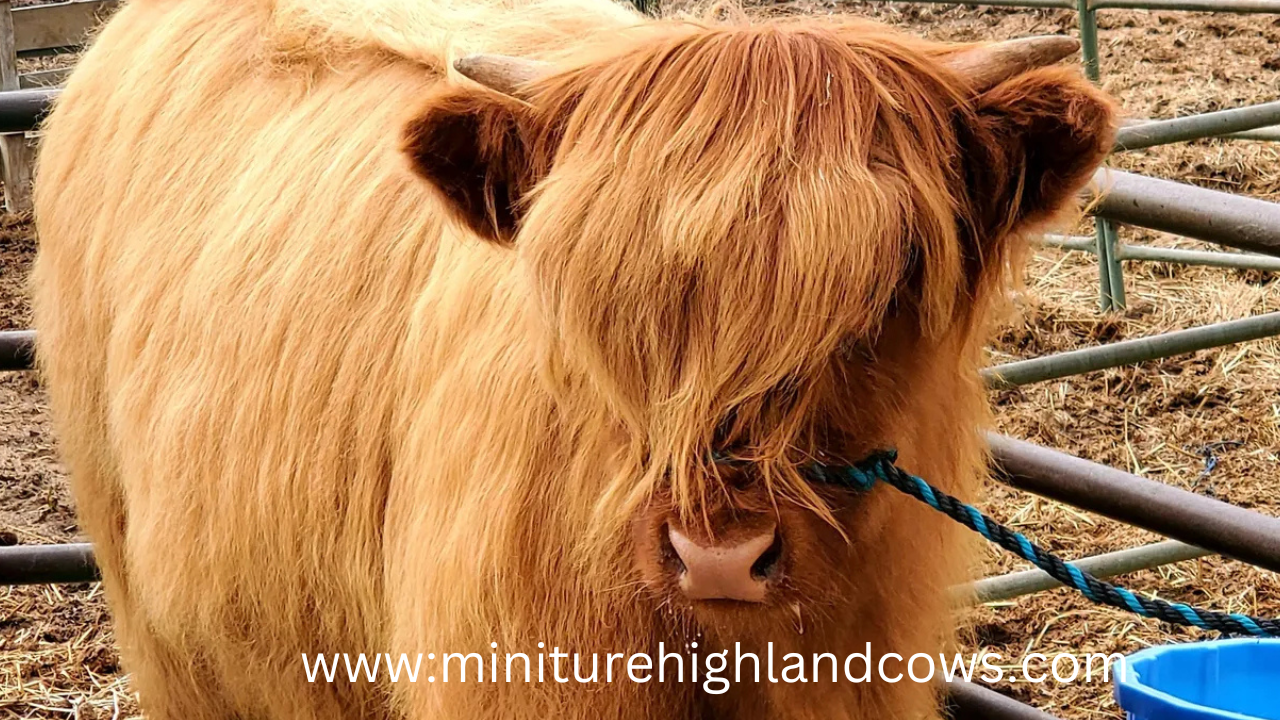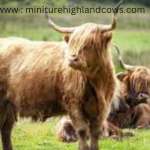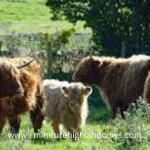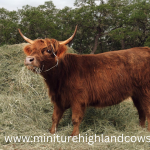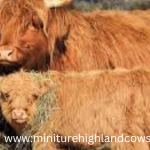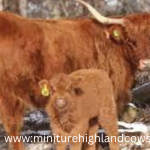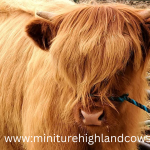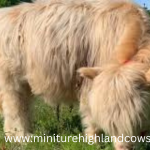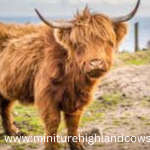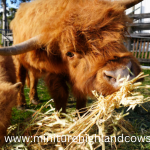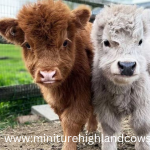Miniature Highland cows are becoming pets because they are friendly, quite unique in appearance, and need less space to thrive compared to regular-sized cattle. Here’s why they are great pets:
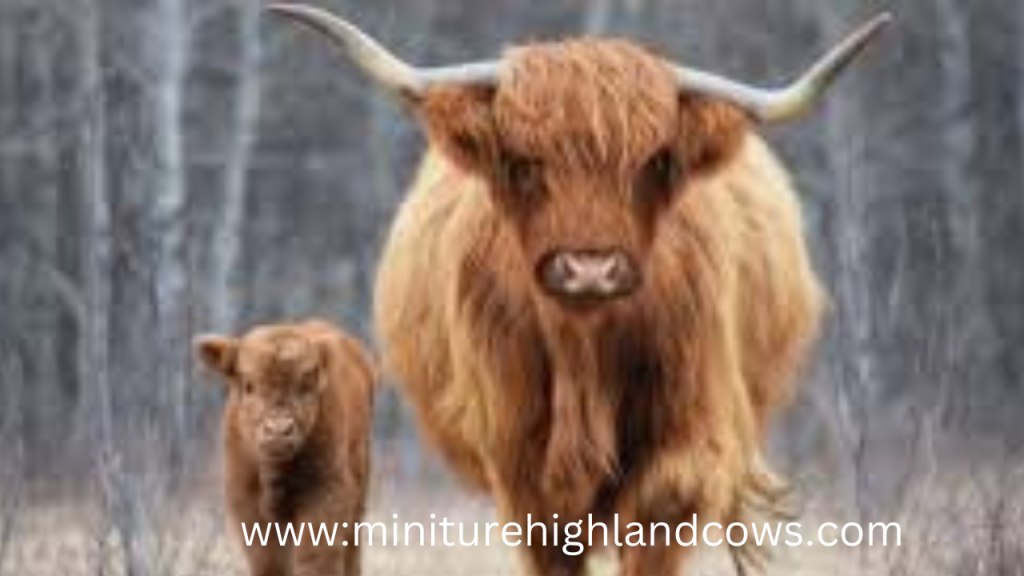
1. Temperament
- Miniature Highland cows are docile and calm.
- They are social creatures that enjoy human interaction and develop great attachments with their owners, much like other domestic farm animals or even a pet dog.
2. Size ####
- Since they are much smaller than regular Highland cows, they are more manageable and accessible for family and hobby farms.
- They are also manageable for smaller pastures or even smaller properties.
3. Appearance and Attractiveness
- Their long, shaggy coats and those long, iconic horns make them very endearingly unique.
- They are often referred to as “living teddy bears” that attract the interest of children and adults alike.
**4. Care Needs
- Miniature Highland cows need plenty of pasture, proper diet-including hay and mineral supplementation-clean water, and provision from extreme weather.
- They require regular maintenance of their coat and even basic health care, namely vaccinations and hoof trimming.
5. Pet Benefits
- They are a sustainable addition to any small farm as they perform eco-friendly lawn mowing and fertilizer.
- Their mere presence can be therapeutic; they can provide companionship to owners and reduce stress, among other things.
Considerations
- Miniature Highland cows are herd animals and need another cow or farm animal or two for companionship.
- They require commitment and proper environment, as they are not indoor pets but still livestock.
With proper care, Miniature Highland cows bring joy and a unique charm into your life while fostering sustainable living.
Miniature highland cow as a pet price
The price of a miniature Highland cow as a pet varies depending on factors like age, gender, pedigree, and breeder reputation. Here’s a general price range:
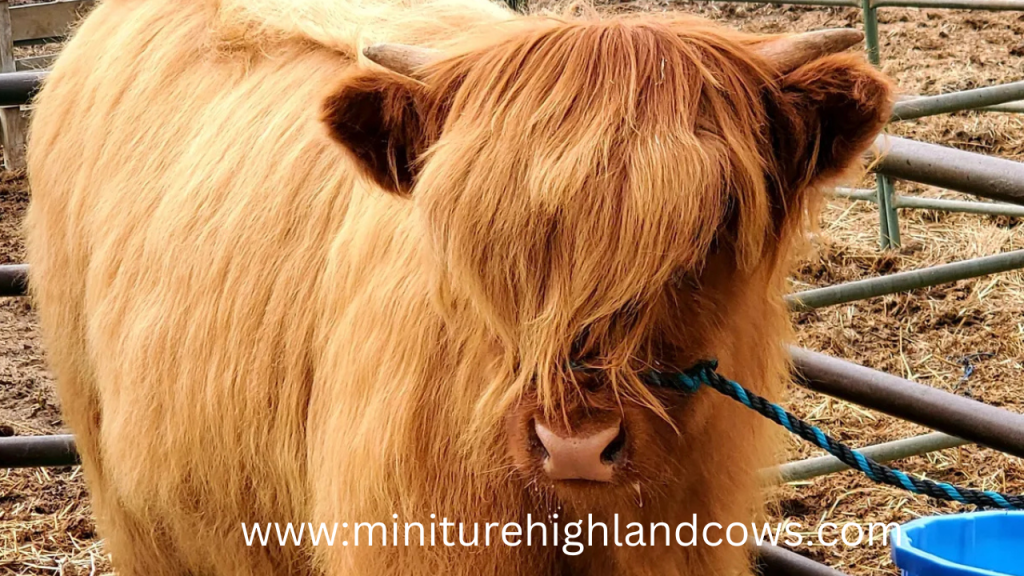
- Calves: $2,000 to $6,000
- Adults: $4,000 to $10,000 or more depending on breeding potential and show quality
- Steers (castrated males): $1,500 to $4,000, often less expensive than breeding animals
Transportation, shelter, fencing, feed, and veterinary care are additional costs. Always buy from a reputable breeder to ensure the cow’s health and proper upbringing.
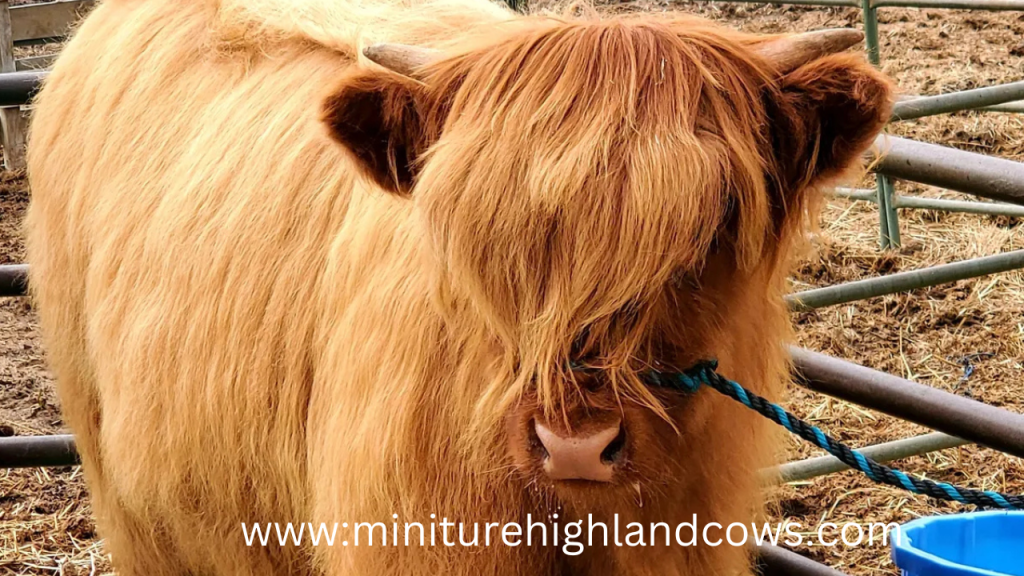
Miniature highland cow as a pet for sale
If you are looking for a small Highland cow for sale, try these tips and some of these available resources to guide you into searching for one:
Where to Find Them
- Respected Breeder
Find miniature Highland cattle breeders using the telephone directory or by accessing sites found online. Carefully inspect online reviews and references about any known breeder.
Highly recommended sites:
- Craigslist Farm & Garden
- Livestock Specialty Websites (e.g., Livestock Market, Farm Finder)
- Social Media Groups
Join Facebook groups or Instagram communities about miniature cattle. Many breeders and owners list animals for sale directly on these sites. - Local Farms and Events
Check from nearby farms or visit agricultural shows and exhibitions where miniature Highland cows can be found on display or offered for sale.
Important Pre-Purchase Considerations
- Health Records: Obtain verification of vaccination and disease-free status.
- Breeding Status: Determine whether it is for breeding, for petting, or a mix.
- Care Knowledge: Know their requirements: space, fencing, feed, and veterinary care.
Price Range .
Be prepared to pay anywhere from $1,500 to $10,000 depending on the age, pedigree, and whether it’s for a pet or breeding cow.
If you would like, I can point you in the direction of breeders or listings!
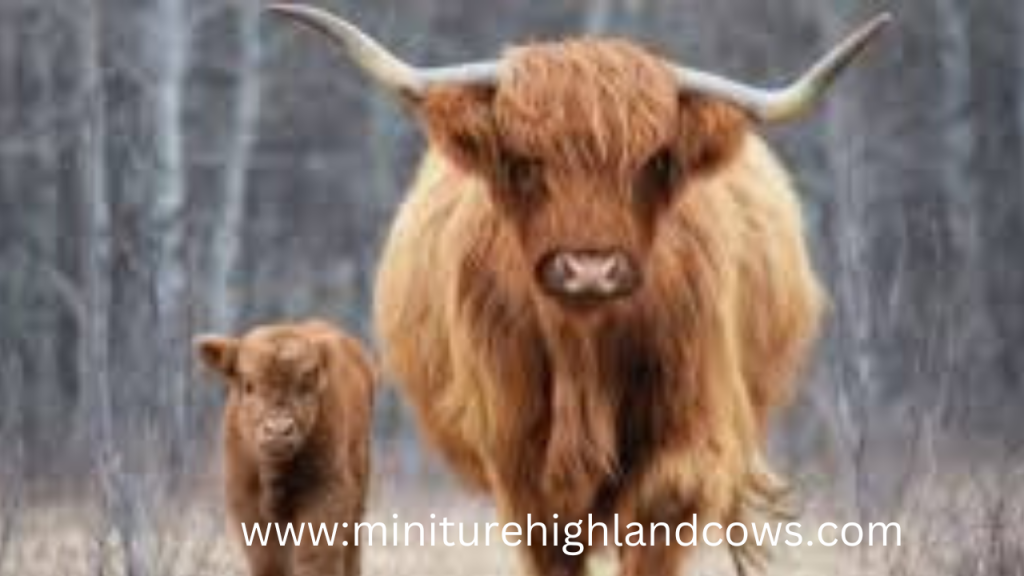
Miniature Highland Cow as a Pet: FAQs
1. Why are miniature Highland cows good pets?
Miniature Highland cows are gentle, social, and manageable in size. Their friendly nature and unique, shaggy appearance make them a great choice for hobby farms or families.
**2. How big do miniature Highland cows get?
Miniature Highland cows typically weigh 500–700 pounds and stand about 36–42 inches tall at the shoulder, making them much smaller than standard Highland cows.
3. What do miniature Highland cows eat?
They primarily graze on grass but also require hay, fresh water, and occasional mineral supplements. In colder months, hay is essential if pasture is unavailable.
4. How much space do they need?
Each miniature Highland cow needs at least 1–2 acres of pasture to graze and roam around. They also need secure fencing and a small shelter to protect from extreme weather.
5. Do they need grooming?
Yes, their long, shaggy coat benefits from occasional brushing to prevent matting and dirt buildup. Grooming is especially important during shedding season.
6. Can miniature Highland cows live alone?
No, they are a type of herd animal and need companionship. Be sure to have at least another cow or similar livestock that the cow can socialize with. .
7. Are they pricey to raise?
While their initial investment is costly ($2,000–$10,000), other expenses include feeding them, providing shelter, erecting fencing, grooming them, and veterinary care. Compared to larger livestock, they are low-maintenance. .
8. Do they get along well with children?
Yes, miniature Highland cows are said to have a calm and gentle temperament and, therefore, perfect for families with kids. Then again, children should be supervised around livestock.
9. How long do miniature Highland cows live?
In the right environment and proper care, they live 15–20 years, so that is a commitment for pets.
**10. Can they be house-trained?
No, miniature Highland cows are outdoor animals and need a pasture or yard to run around and graze in.
11. Where can I buy a miniature Highland cow?
They can be bought from reputable breeders, livestock marketplaces, or local farms. Be sure the breeder offers health records and background information.
**12. Do miniature Highland cows produce milk?
Yes, but in smaller quantities than standard cows. They can be milked, but they are not typically kept as primary dairy animals.
13. Are miniature Highland cows noisy?
They are generally quiet but may moo occasionally, especially when hungry or seeking attention.
14. What are common health concerns for miniature Highland cows?
They are rugged animals but require regular vaccinations, deworming, and maintenance of hooves. Always bring them to a livestock vet for regular follow-ups.
15. Can miniature Highland cows be raised in cold climates?
Yes, because their thick coat double-layered makes them well-suited to live in cold climates, but they need shelter during extreme conditions.
With these FAQs, you’ll be ready to look into owning a miniature Highland cow as a pet.
